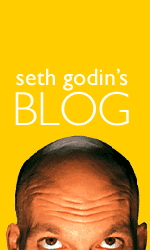The Audacious Meeting Industry Offer of a Lifetime: I Get to Pay for the Privilege of Sharing My Expertise!
![Offer of a Lifetime: screenshot of an email sent to Adrian Segar asking him to pay for the privilege of shaing his expertise at a meeting industry conference. 9/29/23 Subject: Are you a [TOPIC] Expert? Hi Adrian Segar, How are you doing? I wanted to let you know about Meet the Experts, a new initiative for [MEETING INDUSTRY EVENT] in [DATES] at [VENUE, LOCATION] which I think you will find interesting as a way for you to participate in the show and generate valuable leads. Attendees to [MEETING INDUSTRY EVENT] genuinely need the help and expertise of companies and advisors just like yourself. That's why we have introduced a new format, "Meet the Experts" for our 2023 show. [MEETING INDUSTRY EVENT] will bring together the brightest minds in the events industry, and this [DESCRIPTION OF OPPORTUNITY] will feature experts such as yourself creating the ideal platform for you to showcase your knowledge and connect with a highly engaged audience…](https://www.conferencesthatwork.com/wp-content/uploads/2023/10/Outrageous_speaking_opportunity-1024x576.jpg) A [MARKETING PERSON] has invited me to share my expertise at a meeting industry event. Well, there’s nothing unusual about that; it happens frequently. BUT THIS TIME I GET TO PAY FOR THE PRIVILEGE!
A [MARKETING PERSON] has invited me to share my expertise at a meeting industry event. Well, there’s nothing unusual about that; it happens frequently. BUT THIS TIME I GET TO PAY FOR THE PRIVILEGE!
Pay me? No, you pay us!
I’m regularly asked to speak, present, or run a workshop at meeting industry events. While I love to do this, the requests are often silent about something important.
Namely, any mention of compensation for my appearance.
Here’s what I wrote about this in 2021:
“Tip: If you…want to get someone like me to speak at your meeting, try including what you will offer for fee and expense reimbursement in your initial request. Initial offers of payment are so rare, your inquiry will immediately rise to the top of my pile.”
—Adrian Segar, January 2021, Why people continue to speak for free at meeting industry conferences
Someone I’ll call [MARKETING PERSON] clearly read this and decided to go the extra mile. A [LARGE AMOUNT OF MONEY] was indeed featured in their email, after explaining why they were anxious for me to be there.
‘Attendees to [MEETING INDUSTRY EVENT] genuinely need the help and expertise of companies and advisors just like yourself. That’s why we have introduced a new format, “Meet the Experts” for our 2023 show.’
In a genuinely innovative twist, however, I would get to pay the [MEETING INDUSTRY EVENT] so people could meet me, the expert, to “share your insights and advice with attendees”.
Here’s the emailed pitch, anonymized to protect the guilty.
The Letter
9/29/23
Subject: Are you a [TOPIC] Expert?
Hi Adrian Segar,
How are you doing?
I wanted to let you know about Meet the Experts, a new initiative for [MEETING INDUSTRY EVENT] in [DATES] at [VENUE, LOCATION] which I think you will find interesting as a way for you to participate in the show and generate valuable leads.
Attendees to [MEETING INDUSTRY EVENT] genuinely need the help and expertise of companies and advisors just like yourself.
That’s why we have introduced a new format, “Meet the Experts” for our 2023 show.
[MEETING INDUSTRY EVENT] will bring together the brightest minds in the events industry, and this [DESCRIPTION OF OPPORTUNITY] will feature experts such as yourself creating the ideal platform for you to showcase your knowledge and connect with a highly engaged audience.
This is more than just a networking experience; it’s a golden opportunity for you to share your insights and advice with attendees seeking guidance in their businesses.
By joining “Meet the Experts,” you’ll gain access to registered attendees who are actively seeking solutions to their business challenges and [TOPIC].
As an expert, you will have a dedicated meeting space within the [VENUE LOCATION] complete with a table and chairs, where you can have focused meetings with individuals who need your services.
Attendees will apply for a meeting with you in the leadup to the event and once you have pre-qualified them will be able to schedule a meeting on [DATES].
After the event, attendees will have the opportunity to provide feedback and rate their meetings with you. This feedback will help you focus on hot leads post-show.
Each company participating in the program benefits from the following:
- Featured in a “meet the experts” email to registered attendees to drive meeting requests
- A dedicated meeting space within the [VENUE LOCATION]
- Branding, logo and messaging incorporated into the [VENUE LOCATION]
- A table and chairs to conduct meetings
- A link for attendees to apply for a meeting with you (ability to accept or decline)
- Dedicated Meet The Experts profile on the event website, event platform and event app
- Included in our pre-event marketing campaign for Meet The Experts
- A lead scan licence for scanning attendee badges
Price [A LARGE AMOUNT OF MONEY].
The Meet the Experts Program is limited to just 6 experts, Do let me know if you would like me to secure one of those spaces for you.
Kind regards
[MARKETING PERSON]
The Offer of a Lifetime
Truly this is the offer of a lifetime! Though, surprisingly, not everyone agrees. A colleague of mine who received the same pitch sent it to me with the comment:
“All I can say is Ewww”
I’m not sure whether to admire or be disgusted by [MARKETING PERSON]’s chutzpah.
Regardless, apart from sharing it here, I am ignoring their remarkable offer.


